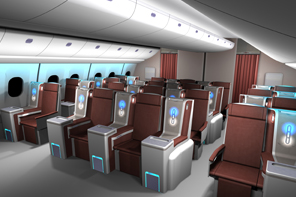TEL 1-844 303-1900


Jet Lag
Our bodies are set to a natural clock. Flying through more than three time zones can confuse your natural clock making you feel tired, irritable and sometimes unable to sleep.
There is no specific treatment for jet lag, but trying to adapt to the new time zone as soon as possible may help. For instance, some travelers may benefit from the psychological effect of resetting their watches to the new time zone as soon as they depart. Most people try to minimize the impact of crossing time zones by planning their activities to accommodate the effects of jet lag.

One useful strategy for easier eastbound travel is to take a daytime flight. If a traveler flies eastward by several time zones during the day, they may arrive at their destination in the middle of the afternoon, home time, and in the middle of the evening, local time. For example, if they leave Boston at 10 a.m. on a flight to London, England, they will arrive in London at 9:30 p.m., GMT. However, their body clock tells them it's only 4:30 EST. They should try to go to sleep at a normal time in the new time zone. If a traveler needs to take an evening eastbound flight, they will arrive in the middle of the night, home time. In this case, immediate rest helps. They should try to sleep for a few hours when they arrive and then try to stay up until bedtime. For most people, westward travel is easier to adapt to than eastward travel. This is probably because it is generally easier to elongate one's day by staying up later, than to try to shorten one's day by going to sleep earlier.
Can Jet Lag be Avoided?
Although the effects of jet lag vary among travelers, almost everyone experiences some change after air travel. Inherent differences in body condition among travelers determine varying strategies for jet lag management. These include good sleep, proper nutrition, and, sometimes, the use of medication.

Preventative behavioral strategies involve beginning to shift the internal clock by changing the sleep schedule before travel. For eastward travel this would involve going to bed earlier and getting up earlier for a week before travel. Important meetings or vacation activities should be scheduled in the afternoon in the eastern time zone. Another strategy is to arrive several days before important activities to give time to acclimate to the new time zone. Westward travelers can benefit by beginning to gradually go to bed later and get up later during the week before travel
Avoiding the factors that contribute to jet lag may be the best defense against it. Primary prevention means getting good sleep prior to a transmeridian flight. Since sleep-wake disturbance is the most widely felt effect of jet lag, being well rested before travel can only help the body cope with the inevitable change in time zone. This includes avoiding alcohol, caffeine, and nicotine, which are associated with restless sleep.
Furthermore, people have explored the use of melatonin as a remedy for jet lag. Melatonin is a hormone that is synthesized naturally by the pineal gland in the brain and is inhibited when the retina of the eye is exposed to light. Melatonin is also thought to influence circadian sleep-wake rhythms, because its effects on sleep-wake regulation are similar to those caused by exposure to light. Because melatonin is believed to impact circadian rhythm, taking melatonin at bedtime may advance one's biological clock, that is, advance the body's need for sleep. Although travelers often claim benefit from its use, the use of melatonin has not been studied extensively and, at this time, is not largely recommended for jet lag therapy. Similarly, early morning bright light may advance a person's sleep phase and allow them to go to sleep earlier. Travelers who arrive in sunny places may find it easier to adjust to a new bedtime.
Conversely, bright light in the evening can delay a person's sleep phase and make it difficult for them to fall asleep at night. Therefore, depending on the contrasts between a traveler's time zone and a new time zone, exposure and avoidance of bright light at certain times may help resynchronize one's rhythm.
Sleeping pills (hypnotics) may be of limited benefit for the first two days following flight, especially if one needs a full night's sleep to perform the next day. Short-acting hypnotics are generally recommended to avoid effects that carry over into the day hours. Over-the-counter medications typically have a lot of carry-over effects that can cause drowsiness and other significant problems for travelers who must perform. Our physicians can advise travelers about what method of management is best for them.
Finally, travelers should remember that a heavy meal often makes one feel sleepy afterward. This can be used to the traveler's advantage to try and fall asleep at a time when the body is not ready to fall asleep. Conversely a light meal may make it easier for you to remain awake when you need to.
